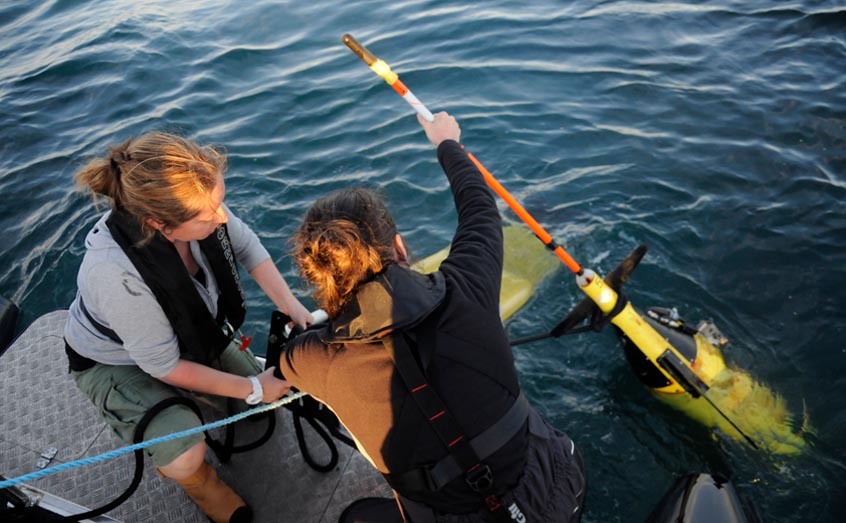SAMS news room
New jobs will strengthen SAMS' research capability

Five new research positions have been created at SAMS as the institute responds to an urgent need to better understand ocean processes.
The ocean is critical to life on our blue planet and understanding how it is changing under the pressures of climate change, biodiversity loss and pollution has never been more important.
In order to help us observe these changes, SAMS is expanding its science team and strengthening in specific areas. The institute is now recruiting two principal investigators and two senior post-doctoral positions in physical oceanography, as well as a senior post-doctoral position in marine biogeochemistry.
SAMS oceanographer Prof. Mark Inall said: “SAMS is a leading institute in ocean observations and is in a fantastic location on the west coast of Scotland to help understand major oceanographic changes in key regions, including the North Atlantic and the Arctic seas.
Through our expertise and easy access to the open ocean, we’ve become a leader in ocean climate studies using large-scale mooring arrays and deploying autonomous underwater vehicles. Our glider programme has near 24/7 monitoring of the north-east Atlantic Ocean, which is crucial data to feed into climate models.
“Such is the pace and scale of climate change, we are seeing changes happening in increasingly shorter timescales, so now is the time to develop our capacity further. We’re looking for ambitious and imaginative oceanographers who can help chart the direction of our research, ensuring we can answer the most pressing questions in ocean science.”
From its Scottish Marine Robotics Facility, SAMS operates a fleet of gliders, as well as other autonomous underwater platforms. SAMS is also a leading partner in pan-Atlantic observation programmes, including OSNAP array, and is an important contributor to long-term Arctic observing via the SIOS programme.
SAMS has a strong oceanographic heritage, dating back to its links with the Challenger Expedition and the formation of the Extended Ellett Line. The Ellett Line is a standard hydrographic section between Scotland and Iceland designed to monitor critical ocean flows. It was started in 1975 by Dave Ellett, who was a physical oceanographer at SAMS.
A partner of UHI (University of the Highlands and Islands), SAMS also offers a highly-rated BSc in Marine Science, which includes a pathway in Oceanography with Robotics.
Find out more about the job opportunities at SAMS and apply for positions here.
